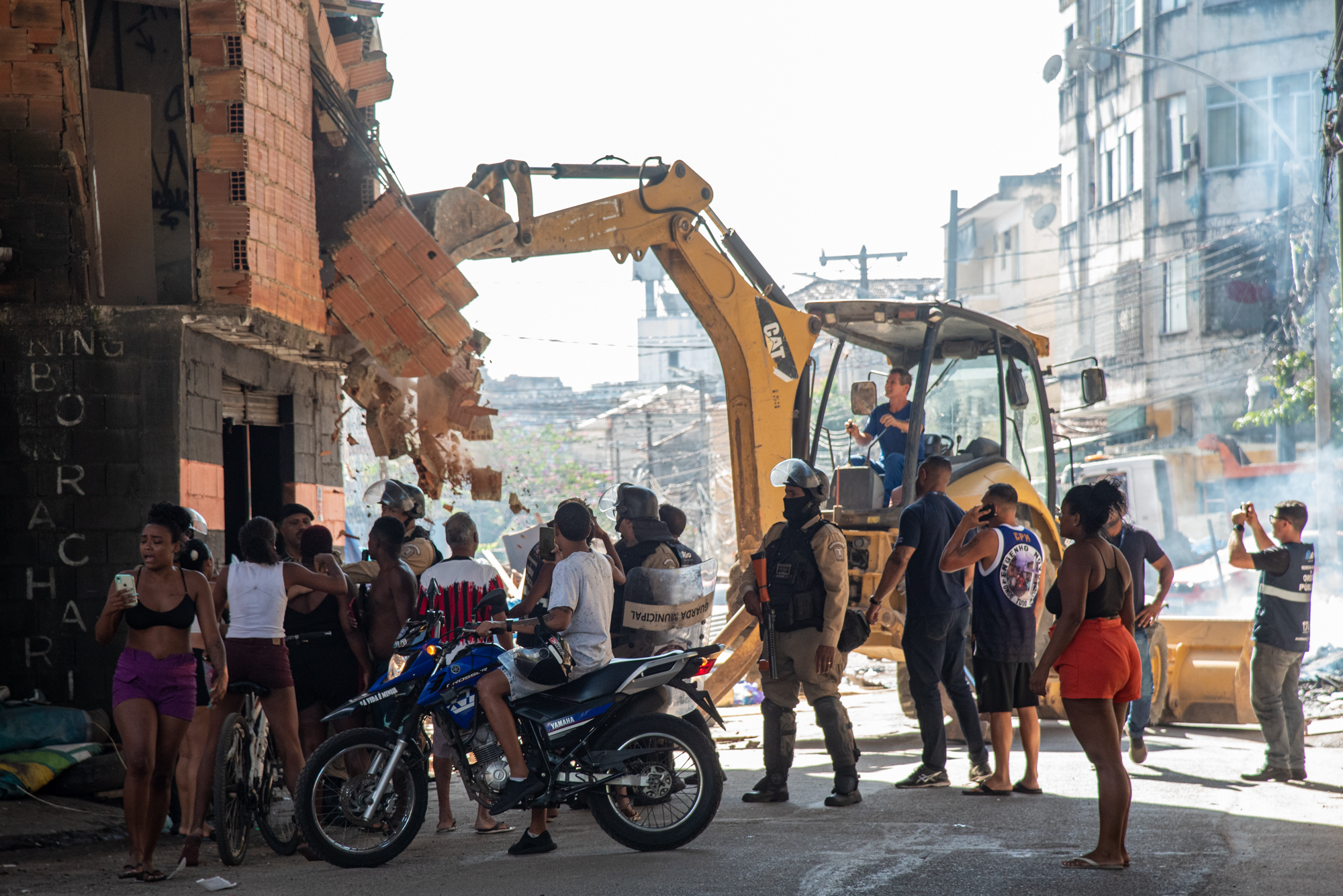
Clique aqui para Português
Last Wednesday, May 24, a “shock order operation” [aggressive program to crack down on public disorder] by the Rio de Janeiro Municipal Public Order Secretariat (SEOP) demolished 25 wooden and brick and mortar homes, a warehouse owned by a building material store, and three shops in the Rato Molhado favela, in the Sampaio neighborhood in the city’s North Zone. The operation was followed closely by the Municipal Guard (GM) and Military Police (PM) at one of the entrances to the favela, Rua Paim Pamplona under the Armando Coelho de Freitas Viaduct, an access route to the Noel Rosa Tunnel. Residents were outraged and tried to protest against the removal, but were met with brutal repression by the police. Now homeless, they had their rights to freedom of expression, protest, and housing violated by violent physical aggression and shots fired with lethal ammunition by Rio’s Military Police.
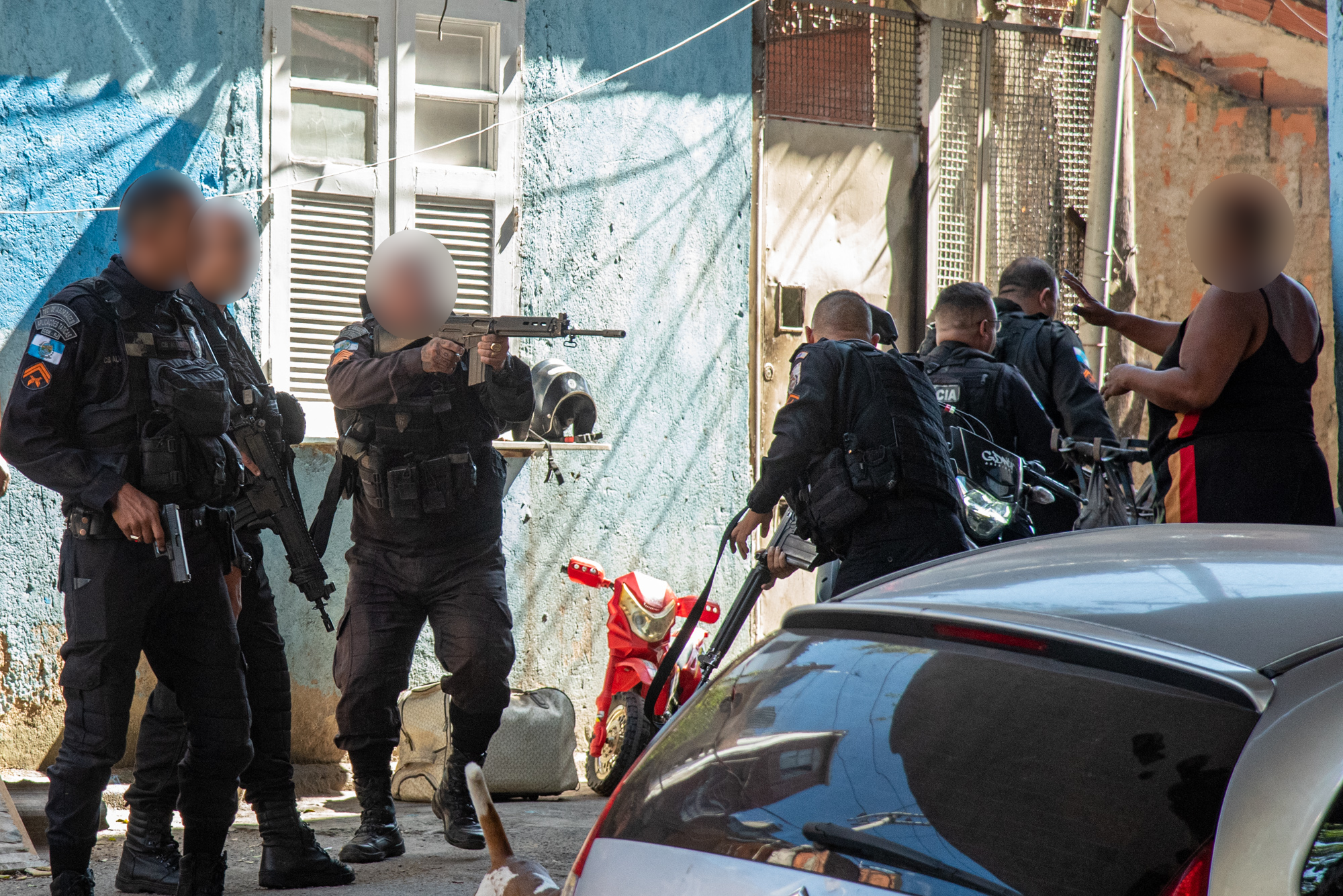
The Rato Molhado favela, also known as the Dois de Maio community, has a history of occupations and forced evictions that dates back to its emergence in 1950. There were many evictions in the 1960s and 1970s. The community only achieved relative security in 1980 when residents organized and established their residents’ association. Rato Molhado is near other favelas, like Jacaré, Jacarezinho, and Céu Azul in Engenho Novo—a region where rights are constantly denied. In 2014, there was an occupation and the emergence of the Telerj favela, which was also the target of a violent eviction by City Hall, at the time also under the administration of Mayor Eduardo Paes.
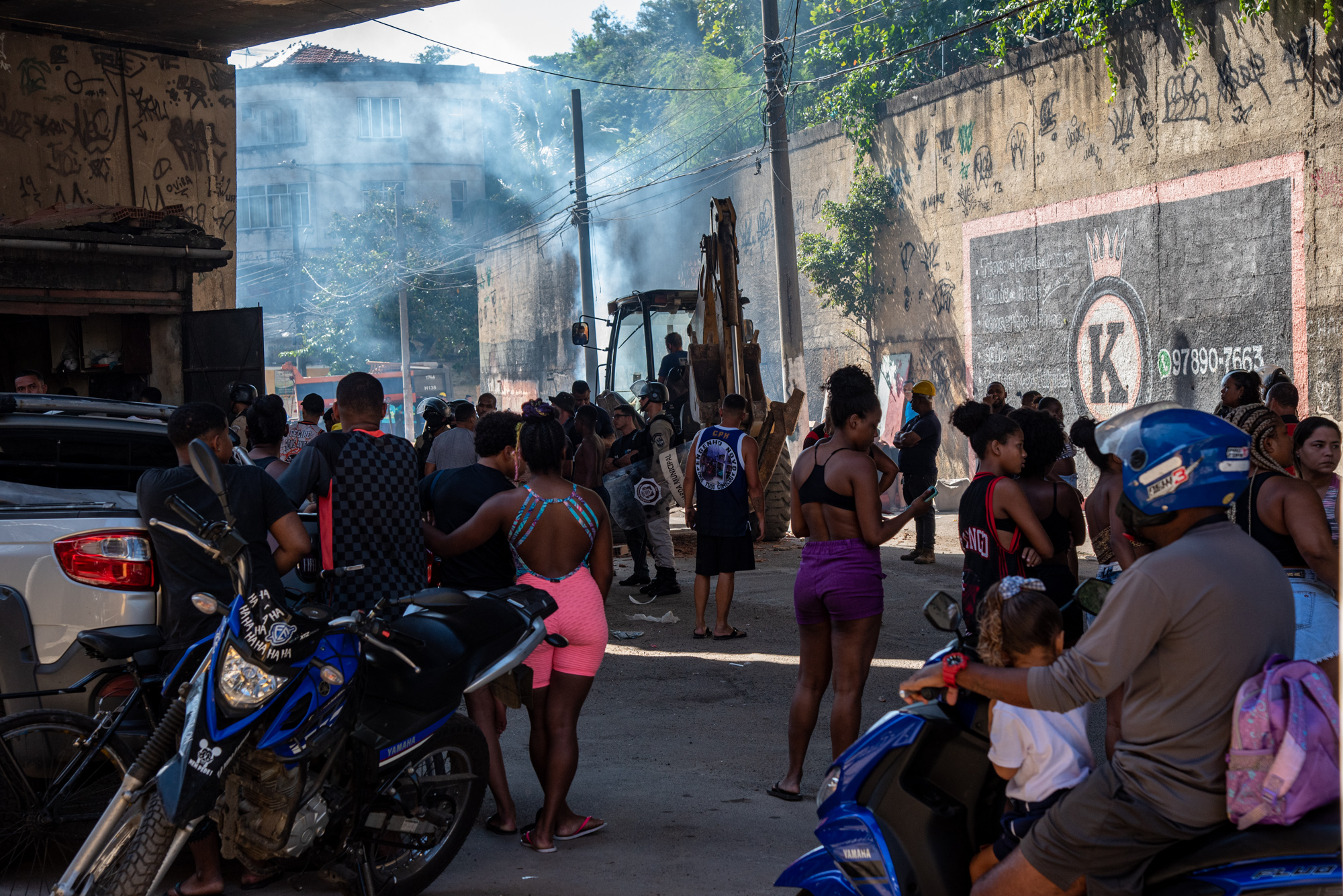
On the Municipal Secretariat of Public Order (SEOP) website, the information reported on the operation is that: “The SEOP removed about 30 irregular structures in the neighborhood of Sampaio, North Zone of Rio.” According to residents, this is a far cry from capturing what happened. Wooden shacks were burned to the ground, without the presence of the fire department to contain the flames. Some claimed the fire was set by residents of the occupation who, now evicted, are on the streets. Outraged by the forced eviction, the brutality, and the loss of their homes, they allegedly set fire to their own homes in protest. Others report that it was the police who set the structures on fire.
Upon arriving at the site, we found the shacks completely burned down, but got there still in time to follow the backhoe demolishing a tire repair shop and jet wash under the overpass. One of the individuals affected did not want to be interviewed or identify himself, as he was very shaken. A woman who was very emotional and had been watching the operation agreed to speak to us on the condition of anonymity.
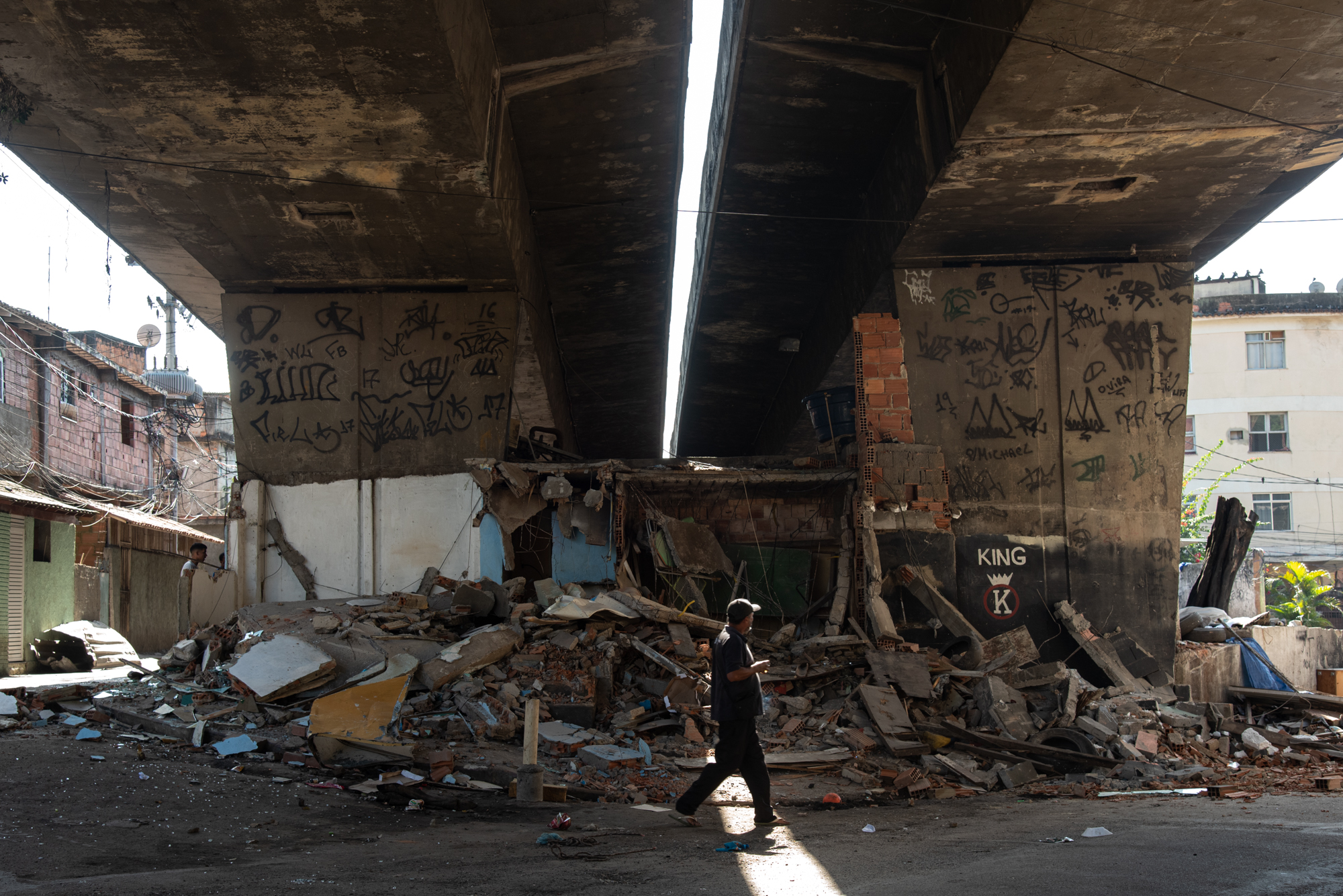
“I am filled with outrage. These are humble people! This young man put a lot of effort into building his tire repair shop, he has kids, his kids are here. It’s his livelihood. I don’t know who this order came from, but there’s got to be humanity, there’s got to be respect. That was his job, it was how he made his living; he was here working to support his children. Fixing cars, repairing tires… But it’s no use saying anything because no one listens to us. It’s always the same. It’s appalling.” — Resident of Rato Molhado who asked not to be identified
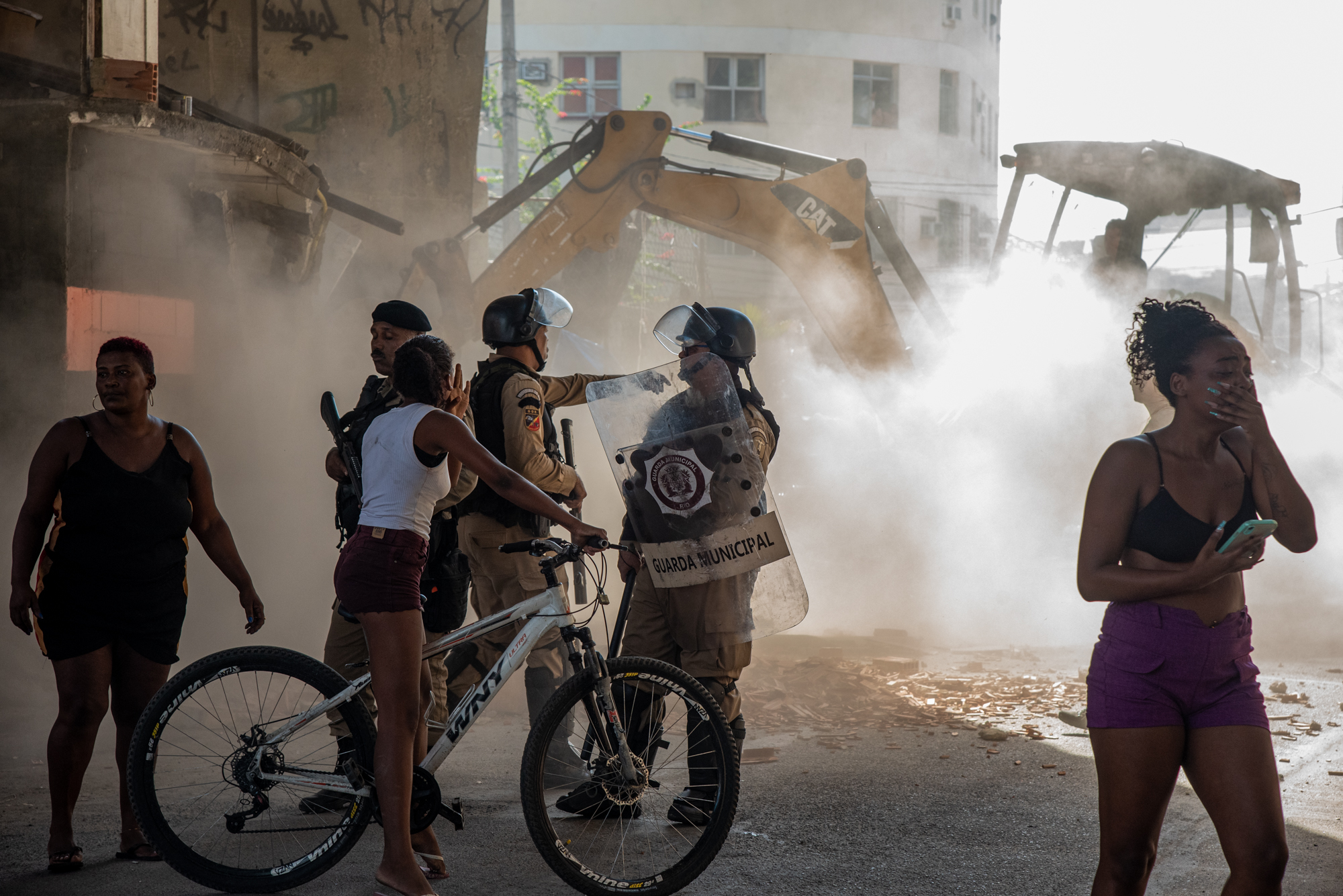
According to residents, City Hall had notified local businesses to regularize their status. However, they were not given enough time. Residents said the businesses had been in operation for over seven years. However, through further investigation using Google Maps, it is possible to see that the commercial structures have been there for over ten years, with records dating back to 2011.
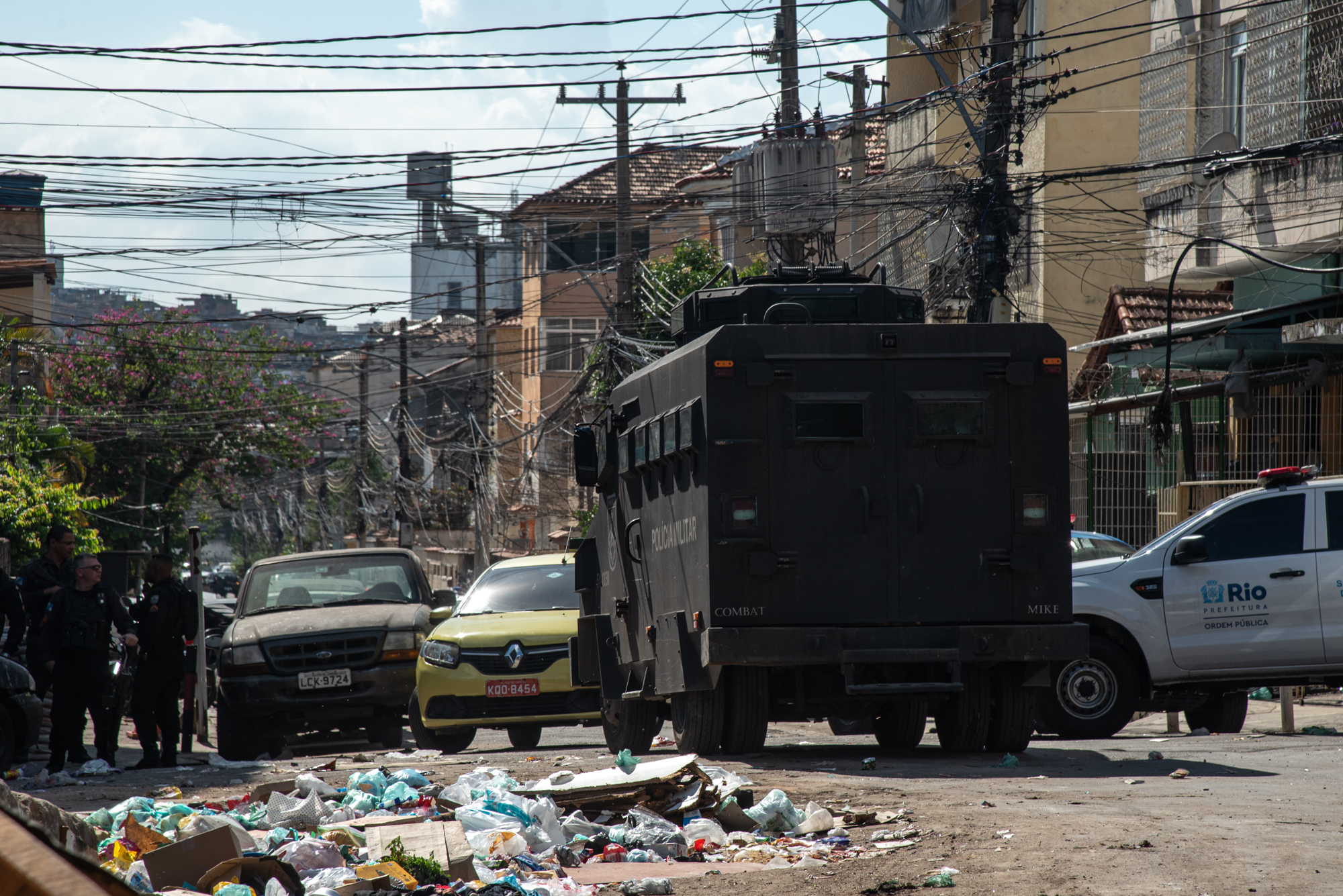
Once the demolition of the brick and mortar shops began, residents demonstrated and resisted the SEOP operation, even resorting to throwing stones and setting off fireworks. That was when the police rushed toward the entrance to the favela. Wielding rifles and pistols, they fired lethal gunfire in a display of disproportionate force and intimidation of residents. The caveirão [armored truck used by the PM] positioned itself in the vicinity of the area where the operation took place, but did not come into action. The brutality continued to escalate, with police pointing guns at unarmed people and physically assaulting residents of Rato Molhado with slaps, punches, and kicks.
The following video shows a completely disproportionate attack on a resident perpetrated by a Military Police officer. The assailant punches her and throws her to the ground while the community screams, pleading for him to stop. In addition to the beating by police, the woman, who did not want to be identified, was taken to the police station on charges of contempt. We do not have information on whether she has been released.
With the end of the operation, the State apparatus left behind a trail of destruction, with burning shacks and businesses belonging to favela residents demolished. The aggression with which the Military Police acted towards residents was appalling and disproportionate. They used firearms against an unarmed population that was obviously outraged by the evictions. In addition to the use of lethal weapons, police activity in the operation was marked by physical assaults and arbitrary arrests.
The next day, May 25, we returned to the scene. Residents were beginning to rebuild some wooden shacks. The debris from the demolition and smoking embers of the fire remained.
About the author: Bárbara Dias was born and raised in Bangu, in Rio’s West Zone. She has a degree in Biological Sciences, a master’s in Environmental Education, and has been a public school teacher since 2006. She is a photojournalist and also works with documentary photography. She is a popular communicator for Núcleo Piratininga de Comunicação (NPC) and co-founder of Coletivo Fotoguerrilha.
